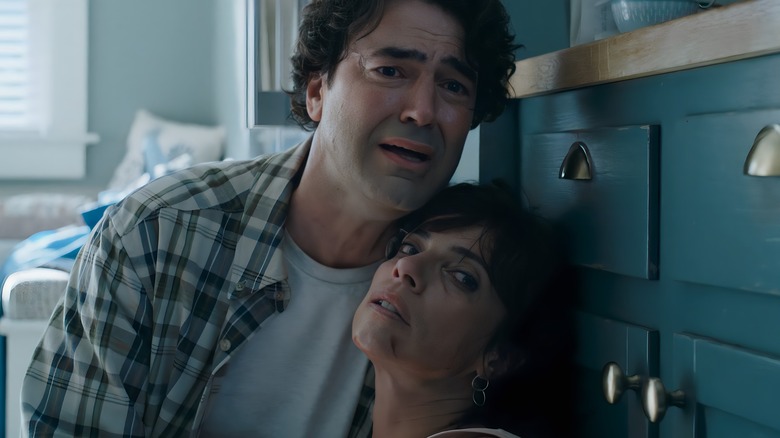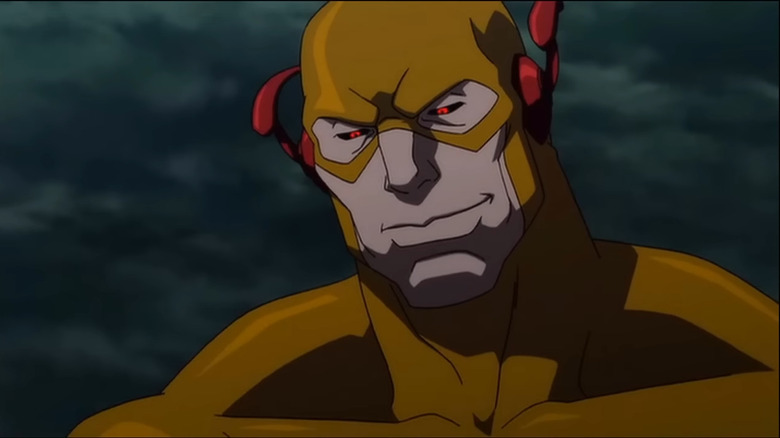The Flash: How That Ending Leaves The Door Open For Barry Allen's Greatest Enemy
This article contains spoilers for "The Flash"
In the film's final act, Barry Allen (Ezra Miller) makes a choice no one else could by traveling back in time to ensure that his mother Nora (Maribel Verdú) is murdered in a home invasion. Strangely enough, "The Flash" focuses mostly on whether or not Barry's father Henry (Ron Livingston) is home to dissuade the home invader from breaking into what they believe is an empty house –- there is never any discussion about simply stopping the invader from hurting his mom. This narrative choice borders on convoluted, and places a distracting amount of emphasis on a can of tomatoes.
However, "The Flash" may have been written this way to save the reveal of Nora's killer's identity -– Eobard Thawne, the Reverse Flash. In the DC Comics Post-Crisis continuity (the main modern DC continuity before The New 52), Thawne traveled back in time to murder Barry's mother to start his journey toward becoming the Flash. According to their timeline, Barry must become the Flash in order for Thawne to gain his powerful connection to the negative speed force.
"The Flash" goes to such lengths not to reveal the identity of the home invader or even meaningfully address why the was no evidence to convict anyone but Henry, that it seems as though they're waiting to explore this crime further in a future installment. The only problem is that they already used the best storyline for the job.
How the Reverse Flash shaped Flashpoint
As we said, Eobard Thawne is an important character in the original "Flashpoint" story – but that fact becomes more impressive when you realize he actually doesn't appear on the page until the very end of the series.
In "Flashpoint," both the reader and Barry are led to believe that Thawne used his powers of time travel to rob the Flash of his powers and turn the world's heroes into dark shadows of their former selves. Batman is a murderous vigilante; Superman is an emaciated prisoner of war; and Wonder Woman and Aquaman are violent monarchs locked in a bloody war just days from destroying the planet. It's only at the end of the story that you (and Barry) realize this dystopia is of his own making.
In a story called "The Trial of the Flash," Barry discovers that Nora's mom was not only murdered by his archnemesis but that her death was indirectly the consequence of his acts as a superhero. It was ultimately this realization that drove him to travel back in time to prevent her death in the first place – and in resetting the timeline, he unintentionally freed Thawne from his chronological constraints, which allows him to finally kill Barry.
Of course, none of these elements would have been able to appear in "The Flash," not least of all because the films haven't set up Thawne until now. It's possible that they're angling to adapt elements of "The Trial" in a future installment, which could potentially lead to a more faithful adaptation of "Flashpoint" that includes the various event-level elements of the original story. The challenge, however, would be making such an event interesting after racing to this proto-"Flashpoint" so early without one of its most important villains.

